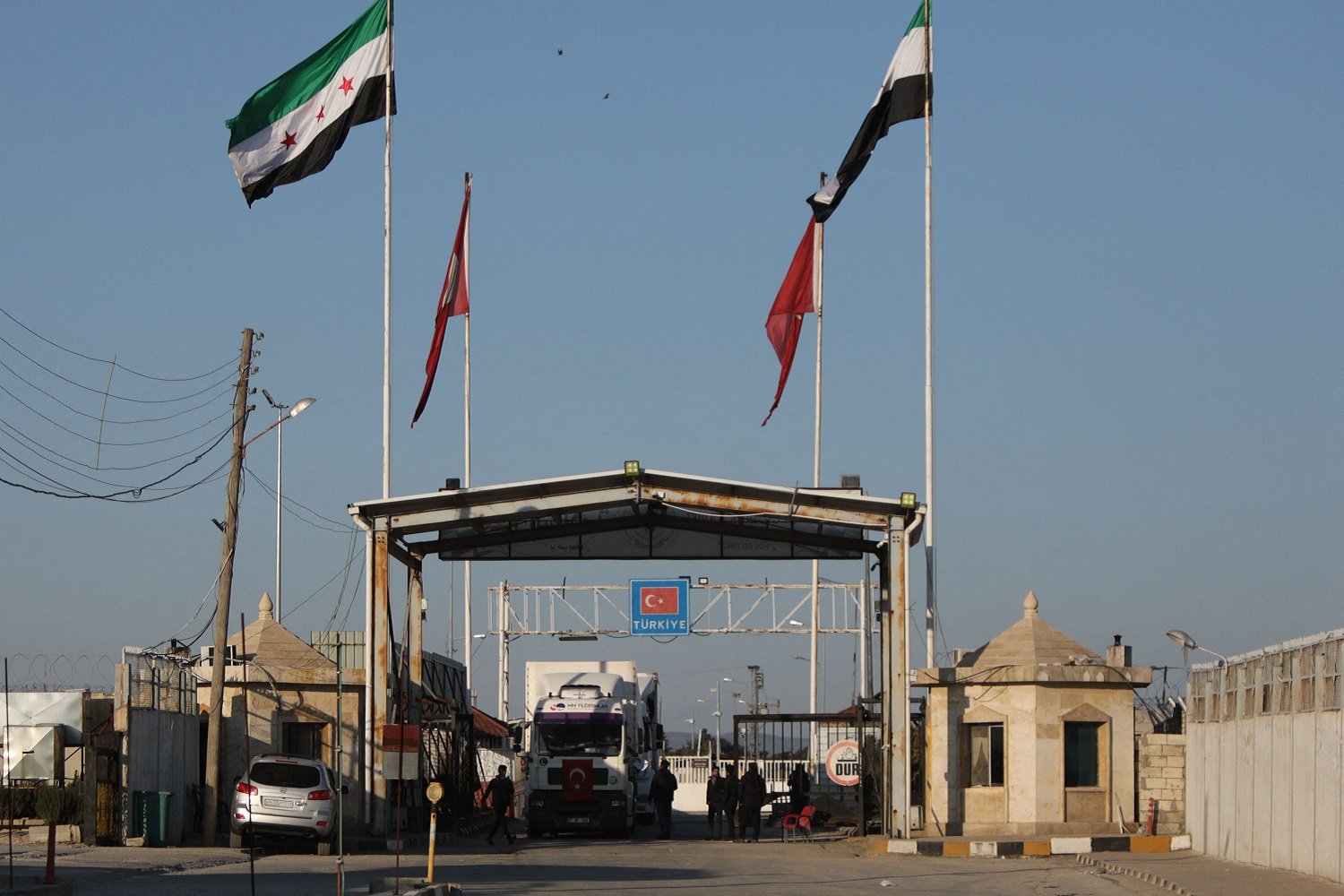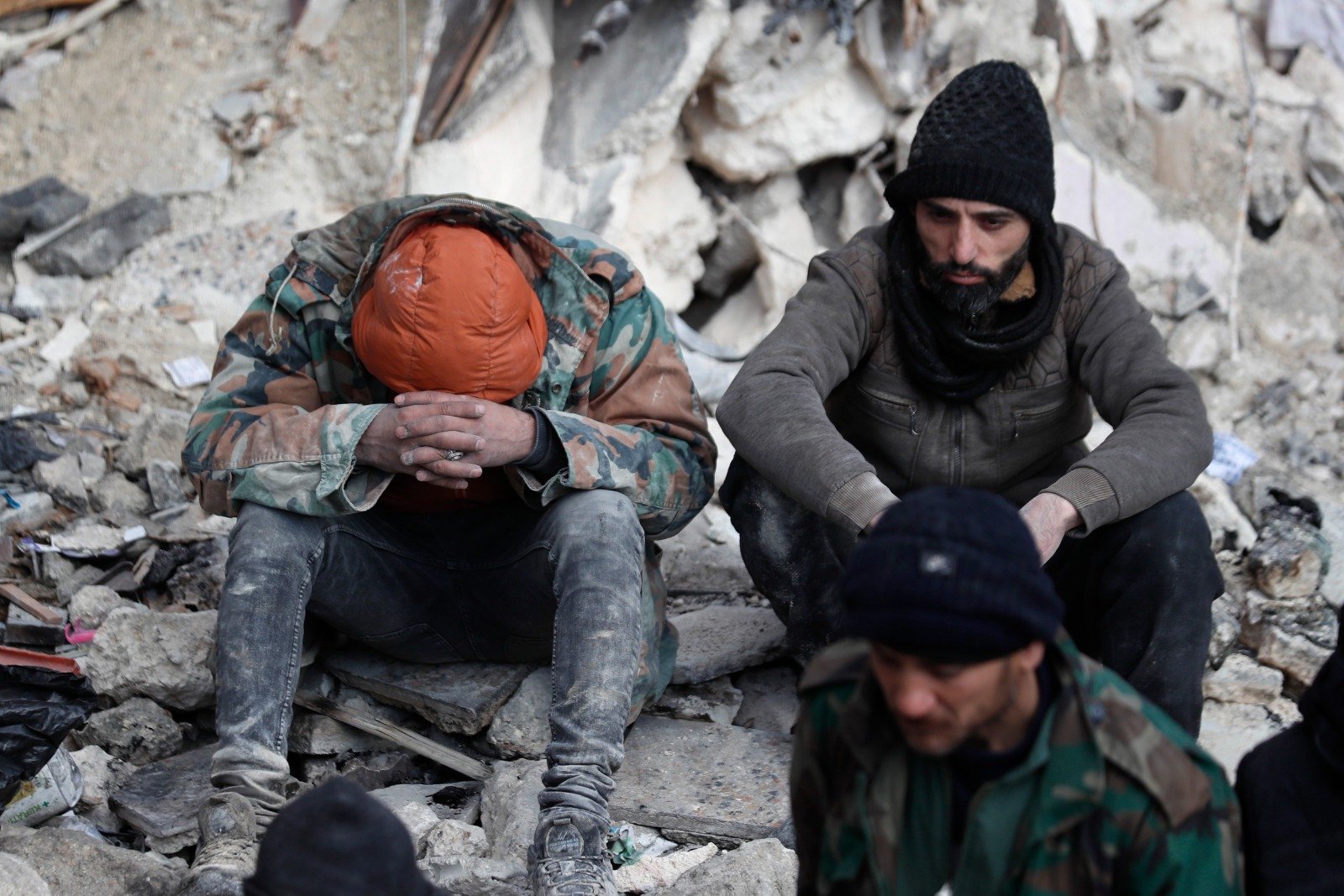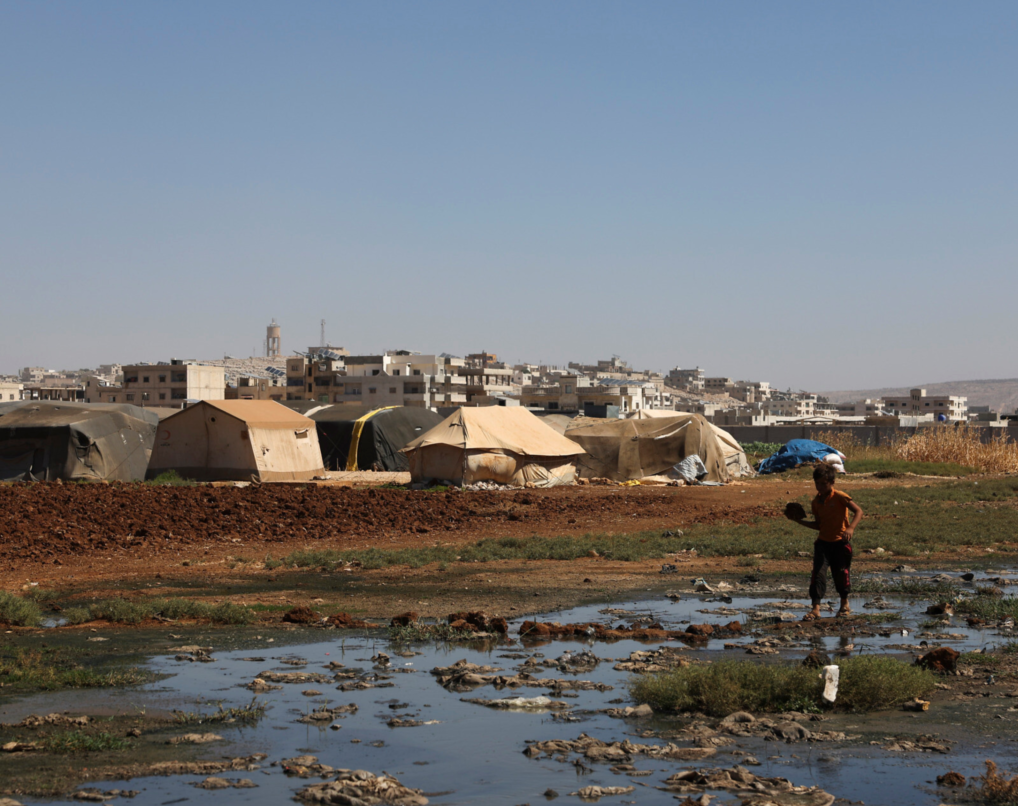
Periodicals
CA—SYR’s monthly periodical report offers thematic analysis of critical dynamics throughout Syria that may impact donor-funded activities. Disaggregated by zone of control, our monthly reports include a timeline of critical events, select economic indicators, and provides localized research and analysis with a whole-of-Syria reach.
An archive of all HAT and CA-SYR periodicals — including past weekly and monthly reports — is forthcoming.
March ‘24 monthly report
Protests erupted across Syrian Salvation Government (SSG)-held areas after news emerged of the killing of a detainee killed under torture while in the custody of Hay‘at Tahrir al-Sham (HTS). Protestors called for the removal of Abu Mohammad al-Jolani and the dissolution of the General Security Service. The UN Special Envoy for Syria, Geir Pedersen, is making arrangements for the ninth session of the Syrian Constitutional Committee, due to convene in Geneva this April. An ongoing disagreement regarding the meeting’s location, however, has led certain parties to back out of the session. Food prices in south and central Syria rose significantly during the month of Ramadan, making it difficult for households to purchase basic necessities. Economic experts have noted higher than average hikes in Syria compared to neighboring countries. In As-Sweida, an altercation between protestors and security forces near the April 7 Reconciliation Center resulted in the death of one protestor. In northeast Syria, Avin Sweid was elected as co-chair of the Executive Council of the Democratic Autonomous Administration in North and East Syria (AANES). In other developments, heightened rainfall has benefitted cattle herders by reducing dependence on barley and increasing water levels across dams in several areas.
February ‘24 monthly report
The US House of Representatives passed the anti-normalization act on 14 February, making the bill ready for the Senate’s vote next. The primary purpose of the legislation is to prohibit “any official action to recognize or normalize relations” with the Syrian government under President Bashar al-Assad. In south and central Syria, the Syrian government increased the price of subsidized goods and basic services. Former opposition groups in Dar‘a have seemingly united and have fought together against both the Syrian government alleged ISIS-affiliates in several locations, most notably in Yadudeh and Mhajeh. In northeast Syria, the Autonomous Administration in North and East Syria’s Internal Security Forces seized hundreds of thousands of Captagon pills and other illicit materials in Al-Thawrah (Tabqa) and Ar-Raqqa. Meanwhile, alleged ISIS attacks in Al-Hasakeh and Quamishli cities signal the potential ability of the group to inspire lone-wolf attacks in areas previously thought secure. In northwest Syria, tensions heightened between the Mawali tribe and the Syrian National Army (SNA) after a tribal member detained by an unidentified SNA faction was killed under torture. In response to the killing, the Mawali tribe called on its members to defect from the Amshat Division, an armed group. Fearing a possible military escalation between both sides, 400 families fled the area.
January ‘24 monthly report
During the 21st Astana Process session on January 24 and 25 in Kazakhstan’s capital of Astana, Russia, Turkey, and Iran agreed to sustain de-escalation efforts, notably in northwest Syria. The parties, however, failed to agree on tangible steps to resolve the Syrian conflict. The US responded to an attack conducted by Iran-backed after three US personnel were killed when Iran-backed groups targeted the US "Tower 22" outpost in Jordan. While the retaliatory strike led to a decrease in attacks, they persisted without cessation.Local armed groups in As-Sweida extended an offer to assist Jordan in its quest to combat cross-border narcotics smuggling after alleged Jordanian airstrikes led to civilian deaths. In other developments, President Bashar al-Assad issued decrees prohibiting residents from engaging in foreign currency transactions or pricing goods and services in any currency other than the Syrian pound. In northeast Syria, the General Council of the Autonomous Administration in North and East Syria (AANES) ratified a new social contract, while the Syrian Democratic Council elected a new leadership. Both developments speak to the possibility of governance actors in the northeast seeking to mend ties with local and foreign actors involved in the Syrian conflict. In northwest Syria, the Syrian government granted a six-month extension to the ‘consent model,’ allowing the UN to utilize the Bab Al-Hawa crossing for cross-border aid deliveries. Major water pumping projects to Idleb City were suspended by funding cuts, leading to supply shortages. Leaks of an unapproved draft law on Public Morals from the Syrian Salvation Government's Ministry of Interior surfaced in media outlets. In northern Aleppo, teachers organized protests in early December, advocating for salary increases.
November ‘23 monthly report
In south and central Syria, the electricity minister Ghassan al-Zamel highlighted the challenges facing the electricity sector. These included partially operational power plants, a damaged electricity grid, and insufficient fuel to run the stations, all interconnected problems that have made poor electricity provision a chronic issue. In Dar‘a, former opposition leaders met in Tafas city despite the tense relationship between them. In northeast Syria, tribal leader and prominent anti-SDF local figure, Ibrahim al-Hifl, announced the formation of the ‘Arab Tribal Forces’ amid the intensifying insurgency against the SDF. Reports also surfaced of government forces providing artillery support for insurgents, leading to an exchange of fire with the SDF in Deir-ez-Zor. Fuel shortages continued throughout the month impacting services and increasing the financial burden on residents, commercial actors, and agriculture. In northern Aleppo, the armed factions of the Mu’tasim Division, Al-Jabha Al-Shamiyah and the Shahba Gathering announced the formation of the ‘Unified Force.’ Finally, local councils in northern Aleppo announced that Syrians in Turkey with specific statuses are be allowed to register for a month-long conditional visit to Syria.
October ‘23 monthly report
The conflict between Israel and Palestinian militant factions threatens to spill over into Syria, but as it stands, all sides have expressed their intent to avoid regional escalation. The Syrian government proposed a draft budget for 2024 of SYP 35.5 trn, 115% higher than for 2023, but 25% lower in dollar value. Also, a new organization, the National Bloc has been set up to represent anti-government protestors in As-Sweida, who are flagging. In the northeast, delays in the distribution of subsidized diesel and fuel for heating could prove disastrous with the onset of winter. In Deir-ez-Zor, the Autonomous Administration pledged reforms to appease unhappy tribes and locals following clashes with the SDF, but provided no plans for action. Government forces continued to bomb vital infrastructure, markets, hospitals and schools in northwest Syria, killing at least 70 people. Humanitarian actors are working hard to help residents amid funding and resource shortages.
September ‘23 monthly report
Bashar al-Assad’s visit to China signals a potential easing of Syria’s international isolation, and additional funding streams. Damascus made futile attempts to end the As-Sweida protests, which gathered interest internationally. In northeast Syria, 93 families left Al-Hol camp to return to Ar-Raqqa. In Deir-ez-Zor, The Autonomous Administration raised its salaries by 100%, and introduced policy to attract investments, reduce monopolies and regulate payments. In retaliation to a terrorist attack in Ankara, the Turkish army decimated infrastructure in the northeast. The first UN aid convoy since July entered through the Bab al-Hawa crossing, facilitated by the Humanitarian Action Coordination Office. In Idleb, the Syrian army responded viciously to an attack on a Military Academy in Homs, bombing hospitals, schools and residential areas.
August ‘23 monthly report
The Arab League’s Ministerial Liaison Committee meeting in Cairo acknowledged of the Syrian government’s efforts towards normalization in the region, however, actual results remain uncertain. Protests in As-Sweida followed the government's decision to increase fuel prices by up to 167%, and then spread to Dar‘a, Idleb and Aleppo and Deir-ez-Zor and Ar-Raqqa. Damascus’ options for a resolution are few. In northeast Syria, clashes between Arab tribes in Deir-ez-Zor and the Syrian Democratic Forces are becoming a serious security threat. Attempts at mediation (with the support of the US) have so far failed. In northwest Syria, Hay’at Tahrir al-Sham arrested HTS deputy leader, Abu Maria al-Qahtani on the grounds of espionage, a blow to its leader Abu Mohammad al-Jolani.
July ‘23 monthly report
Russia’s veto of the proposed 9-month extension of the UN cross-border mechanism has left humanitarian organizations searching for an alternative. Continued black market depreciation of the Syrian pound, and collapsing provision of services have led to Damascus considering new public-private partnerships to raise cash. In the northeast, shop owners are protesting the Autonomous Administration’s continuously rising taxes. Conflict between the Deir-ez-Zor Military Council and the SDF threatens to destabilize security. The SSG has dissolved local councils, replacing them with a centralized structure which could improve coordination, but also represents a shift away from civic power. HTS arrested a number of its members for espionage — the group has downplayed the severity of the breach but it appears significant.
June ‘23 monthly report
In the face of civil war, displaced Syrians in Sudan are scrambling to leave. The bumper wheat harvest of 2023 has failed to translate into bumper profits for farmers, while food prices in government-held areas continue to increase. In Dar’a, government security forces are implementing a new round of settlements, which have attracted an unexpectedly high turnout. Students have been traveling to government-controlled areas to take exams because qualifications awarded by the Autonomous Administration remain unaccredited. Narcotics traders in Ar-Raqqa are being exposed by a social justice group on Facebook, leading to several arrests by the Internal Security Forces. In the northwest, seasonal water shortages are happening again in Al-Bab city, with wells supplying the city drying up in the summer. Truck drivers who have seen their jobs eroded are protesting across Turkish-backed areas.
May ‘23 monthly report
In the aftermath of the Arab League Summit, many of Syria’s Arab neighbors have been clear about their expectations of Damascus; the government’s capability to bring about these changes remains limited. In government-held areas, a visit by Ibrahim Raisi, the Iranian president, to Damascus, in which a number of military and economic agreements were brokered has reinforced the Syrian–Iranian relationship. The closure of the Semalka–Fishkhabour border crossing between northeast Syria and the Kurdistan Region of Iraq highlights intra-Kurdish tension, and had a knock-on effect on commercial activity and humanitarian activities. Protests against HTS for the arrest of members of Hizb al-Tahrir, a global non-violent political party, spread throughout Idleb and Aleppo. Arrests are in line with HTS actions to remove political (and military) threats, and to demonstrate opposition to extremism.
April ‘23 monthly report
Syria, with help from Saudi diplomatic efforts, has been readmitted into the Arab League. Despite the landmark moment, regional and Western states remain opposed to normalization with the Syrian government. In government-held areas, assassinations of individuals involved in illicit narcotics activities increased throughout April while the government is accused of trying to obscure Palestinian identity and origins of Yarmouk camp, by renaming it Yarmouk street — the return of Palestinian refugees to the camp post-reconstruction has been marred with difficulties. The role of social media to instigate and exacerbate tribal disputes in northeast Syria disputes is new, with leaders calling for a block on platforms. Amid talks of a Syrian–Turkish rapprochement, HTS is acting strategically to secure involvement in northwest negotiations.
March ‘23 monthly report
Developments in economic and political relations with Damascus signal further momentum toward reintegration of the Assad government in the Arab world — Western countries are standing firm against any form of normalization. In government-held Syria, food prices in Damascus rose ahead of Ramadan, while the Central Bank is again trying to increase foreign currency revenues. Syrian traders in Aleppo appear to be cautious of the growing presence and influence of Iran-backed business owners and militia. The Syrian Arab Red Crescent is trying to formalize aid distribution through its head offices in Dar’a. In the northwest, the Barzani Charitable Foundation’s provision of aid in opposition-held areas exposes the tangled and multi-layered loyalties of Kurdish political and security actors. The killing of four Kurdish civilians in Jandairis has exacerbated civil unrest and disrupted security dynamics in Turkish-controlled areas. Torrential rains have flooded northern Syria, damaging large areas.
February ‘23 monthly report
The aftermath of the 6 February earthquake has revealed accusations of aid appropriation and inequitable allocation. Damascus has centralized aid collection but distribution has been chaotic, while political interests hampered aid delivery in the northeast, and poor coordination caused confusion in the northwest. Arab states' attitudes towards Damascus have thawed, with countries sending pledges of support, and aid and, where required, opening airspace to humanitarian flights. In eastern Syria, the deaths of truffle hunters in the Syrian Badia raise questions over who benefits from the attacks; ISIS, Iranian-backed armed groups, or government security forces. The US has angered Damascus and Ankara with a senior official's visit to northeast Syria. In northwest Syria, a new military group in northern Aleppo suggests Hay'at Tahrir al-Sham's expansion in Turkish-backed areas.


























